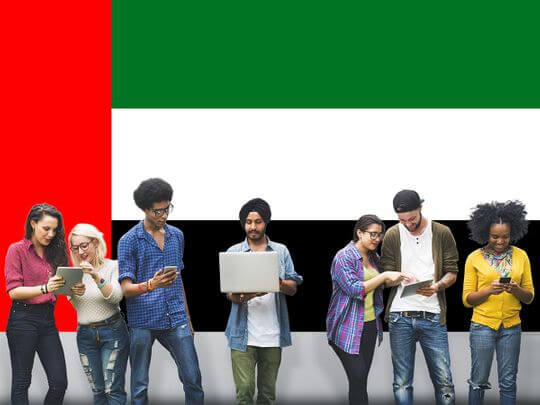The tuition, immigration, and taxation policies of the host country are significant determinants of the economic benefits brought about by international students. According to a study by the German Academic Exchange Service (DAAD) titled The Financial Impact of Cross-Border Student Mobility on the Economy of the Host Country.
The study identified a wide range of economic effects on the six participating European nations. It also showed that it may take significantly longer in some nations for the economic advantages of having overseas students to offset the expenses of hosting them.
The German study emphasizes how crucial it might be for the economy of the host country to keep international students after they graduate. Which is perhaps the most intriguing finding.
Why UAE is Inviting The International Students
A Switch Of Roles
Before a few years ago, the UAE was not well renowned for higher education, much less drawing in foreign students. In the past, the UAE was a net exporter of undergraduate students to institutions in North America, Europe, and Australia. It used to send around 15,000 students overseas each year. But that figure has been rising by up to 4% annually.
Thousands of students used to leave the UAE at the start of each fall and spring semester to attend some of the top institutions in the US, the UK, and Canada. And Australia to further their education and chase their ambitions, something they still do today.
However, the nation is drawing more international students to an increasing number of academic institutions. Thanks to the government which provide huge benefits to the students. This is the reason, today most students even work online by providing some kind of online assignment help Dubai-based, or essay writing Dubai-based services.
Policy Changes
Many viewed the UAE government’s announcement in January 2021 to provide longer-term resident visas to international students studying there as a game-changer.
A few days later, Vice-President and Prime Minister of the UAE and Ruler of Dubai. His Highness Sheikh Mohammed bin Rashid Al Maktoum announced that overseas. Students will be allowed to bring family members into the nation “whenever they have the financial capacity” to do so.
The UAE Cabinet’s instruction urged more students to choose the nation as their undergraduate and graduate study abroad location and encouraged them to establish roots there long after their academic careers are over.
The Lives Of People
The UAE is home to 60 internationally renowned university campuses. Which brings in millions of dollars and aids the government in obtaining foreign cash. Through the use of educational degrees to upskill oneself for job advancement and change. Launch a business, or immigrate to a new nation. These institutions are improving the lives of individuals from many countries, particularly those from Asia, Africa, and the Middle East.
According to Mohammad Abdullah, managing director of Dubai International Academic City. “Academic institutions’ crucial role in luring and fostering future generations of creators, entrepreneurs. Specialists have laid the foundation for the nation’s economic growth, innovation, and competitive industries (DIAC).
The Centre Of Knowledge
For the Gulf Cooperation Council (GCC) and the larger Middle East, North Africa, and South Asia (Menasa) area, the UAE. And particular Dubai has become a knowledge hub.
It provides a top-notch infrastructure and services to support educational and training institutions as one of the leading global cities in the globe. With 37,602 students enrolled, Dubai is home to 35 foreign or internationally accredited campuses. And 78 of them have domestic licences and are authorised by the Council of Academic Accreditation, Ministry of Education.
Online Learning Boom
The UAE has a compound annual growth rate (CAGR) of 10.3% for e-learning. On the strength of growing government investments to digitally transform the education sector and favourable student attitudes toward online classes. The UAE online education and e-learning market is anticipated to enjoy the rapid expansion.
The Middle East is moving ahead in the field of online education by encouraging the digitisation of training and learning by giving people technological devices.
The rise of several industries around the area has created a sizable market for suppliers and allowed for the entry of new companies into the thriving e-learning industry.

